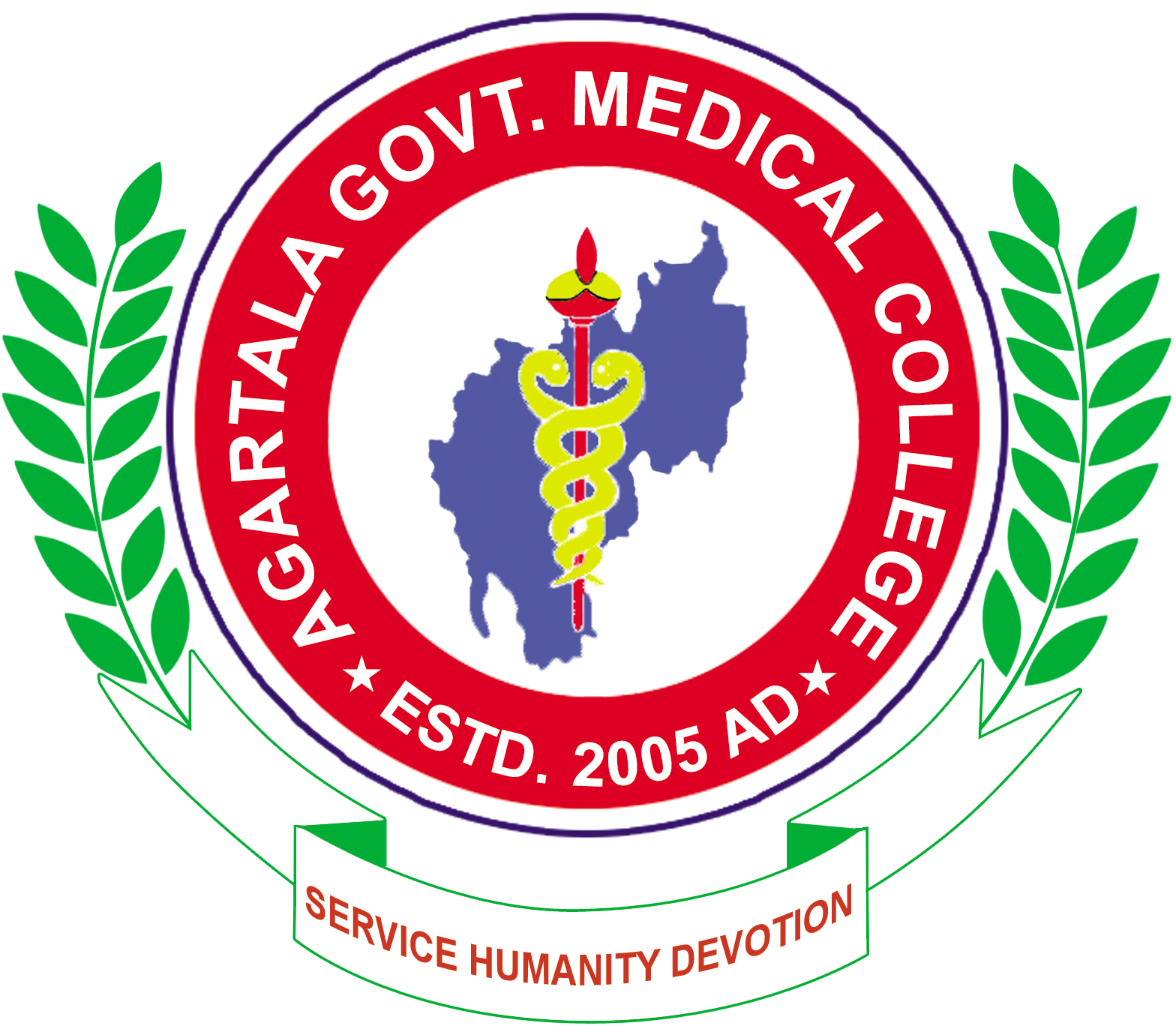DEPARTMENT OF ANESTHESIOLOGY
The Department of Anesthesiology at AGMC is dedicated to providing high-quality anesthetic care for surgical and procedural interventions. The department specializes in the safe and effective management of anesthesia, pain relief, and critical care support, ensuring optimal outcomes for patients undergoing various medical and surgical procedures.
1. Academic Curriculum
The department offers education and training in anesthesiology for undergraduate (MBBS) and postgraduate (MD Anesthesiology) students. Key areas of study include:
- Basic Anesthesia Principles: Understanding the fundamentals of anesthesia, including pharmacology, physiology, and safety.
- General Anesthesia: Techniques and protocols for providing anesthesia during major surgeries, including induction, maintenance, and emergence.
- Regional Anesthesia: Methods such as epidural, spinal, and nerve blocks to provide pain relief and anesthesia for specific procedures.
- Pain Management: Strategies for managing acute and chronic pain, including multimodal analgesia and interventional techniques.
- Critical Care: Principles of intensive care medicine, including monitoring and managing critically ill patients.
- Anesthesia for Special Populations: Anesthesia techniques and considerations for pediatric, obstetric, geriatric, and obese patients.
- Perioperative Medicine: Care of patients before, during, and after surgery, focusing on preoperative assessment, intraoperative management, and postoperative recovery.
2. Clinical Services
The Department of Anesthesiology provides a comprehensive range of clinical services to ensure safe and effective anesthesia care:
- Preoperative Assessment: Comprehensive evaluation of patients prior to surgery to assess their suitability for anesthesia and plan the appropriate anesthetic technique.
- Intraoperative Anesthesia Management: Administration of anesthesia during surgical procedures, including monitoring vital signs, adjusting anesthetic levels, and managing any intraoperative complications.
- Postoperative Care: Monitoring and management of patients in the recovery room, ensuring smooth transition from anesthesia and addressing any immediate postoperative issues.
- Pain Management Services: Providing both acute and chronic pain management solutions, including epidural analgesia, nerve blocks, and patient-controlled analgesia (PCA).
- Critical Care Anesthesia: Specialized care for critically ill patients requiring intensive monitoring and support, including advanced airway management and organ support.
3. Faculty
The department consists of highly skilled anesthesiologists with expertise in various aspects of anesthesia and critical care:
- Head of Department (HOD): Dr. …………………….MD (Anesthesiology), specializing in pain management and critical care anesthesia.
- Senior Faculty Members: Experts in general anesthesia, regional anesthesia, pediatric anesthesia, and critical care, providing leadership in education, clinical practice, and research.
4. Workshops, Seminars, and Conferences
The department regularly organizes educational activities for medical students, residents, and healthcare professionals:
- Workshops on Anesthesia Techniques: Hands-on training in various anesthesia methods, including regional blocks, airway management, and advanced monitoring techniques.
- Seminars on Pain Management: Discussions on innovative approaches to pain relief, including multimodal analgesia and new pharmacological options.
- Conferences on Critical Care Anesthesia: Covering topics such as the management of critically ill patients, advances in intensive care, and emergency protocols.
5. Facilities and Resources
The Department of Anesthesiology is equipped with advanced facilities to support high-quality anesthesia care:
- Anesthesia Workstations: Modern equipment for monitoring and administering anesthesia, including ventilators, infusion pumps, and patient monitors.
- Post Anesthesia Care Unit (PACU): Dedicated area for the recovery of patients from anesthesia, equipped with monitoring devices and emergency support.
- Simulation Lab: Facilities for training in anesthesia techniques, emergency procedures, and crisis management using simulation technology.
- Pain Management Clinic: Specialized clinic for the assessment and management of acute and chronic pain, with resources for various interventional pain relief techniques.
- Library and Digital Resources: Access to textbooks, research journals, and online databases related to anesthesiology and critical care.
6. Research and Publications
The department is involved in research aimed at advancing the field of anesthesiology and improving patient outcomes:
- Anesthesia Research: Studies on new anesthetic agents, techniques, and safety protocols.
- Pain Management Research: Investigations into effective pain management strategies and novel analgesic therapies.
- Critical Care Research: Research on the management of critically ill patients, including ventilatory support, fluid management, and sepsis treatment.
- Publications: Faculty members publish research findings in peer-reviewed journals, contributing to advancements in anesthesia and critical care medicine.
7. Student Involvement
The department provides numerous opportunities for students to engage in anesthesiology:
- Clinical Rotations: Hands-on experience in anesthesia practice, including preoperative assessment, intraoperative management, and postoperative care.
- Research Projects: Opportunities for students to participate in research related to anesthesia, pain management, and critical care.
- Educational Activities: Involvement in workshops, seminars, and case discussions to enhance understanding of anesthesiology and critical care principles.
8. Community Outreach Programs
The department is dedicated to improving community health through various outreach initiatives:
- Pain Management Workshops: Community-based programs focusing on pain relief techniques and education on managing chronic pain conditions.
- Preoperative Health Camps: Offering preoperative assessments and education to underserved populations, ensuring safer surgical interventions.
- Emergency Response Training: Providing training in emergency anesthesia and critical care procedures to local healthcare providers and emergency responders.
9. Future Directions
The Department of Anesthesiology at AGMC aims to:
- Advance Anesthesia Techniques: Explore new anesthetic agents and methods to improve patient safety and comfort.
- Enhance Pain Management Services: Expand pain management programs and integrate new therapies for chronic pain relief.
- Strengthen Critical Care Services: Develop specialized critical care protocols and improve outcomes for critically ill patients.
- Increase Community Engagement: Expand outreach programs and education to enhance public awareness and access to anesthesia and pain management services.


